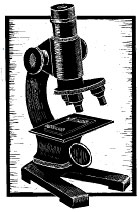For the Record
The challenge of transformation
By Ethan Dmitrovsky, M.D.
Dartmouth Medical School is at a distinct juncture in its long history—in the midst of a period of transformation. Our life-sciences enterprise is vibrant, with a historic increase this year in research funding that permits us to broaden our reach and enhance our national stature. We are also experiencing an energetic evolution of our programs and facilities, with a major expansion of space dedicated to cancer care and cancer research. A further addition to our Medical Center will permit us to continue to advance our pursuit of clinical excellence. We also plan to construct a new life-sciences building that will strengthen our already strong ties with Dartmouth College.
Visibility: Taken together, these and many other changes will allow us to better serve our region and nation and to augment the national visibility of DMS and DHMC. Still, it is our responsibility in looking ahead not to lose, but to maintain and build on, the strengths evident in our size and core values— especially our atmosphere of academic collegiality, which promotes interdisciplinary collaboration. We must also continue to embrace our missions of excellence in clinical care, scholarship, teaching, and, importantly, service to our region and our nation. I am confident that we can do all that while transforming our institution.

|
|
A humanistic approach to medicine cannot be fully realized
unless practitioners are versed in its scientific basis. |
Some students and graduates wonder whether we are altering former directions of the School. For example, DMS has a tradition of attracting medical students interested in primary care. Some may feel that increased emphasis on the life sciences may detract from a primary- care focus. Yet consider that we admit motivated students with outstanding academic and personal credentials. They should be provided the experience and education to make informed decisions about their careers. Students have always been and will always be encouraged to pursue any field in medicine as long as it fulfills their professional aspirations. Whatever career they choose, our students are urged to model the values of our academic community when they serve their future patients and communities.
Elucidation: A broad-based background in scientific concepts and principles is important to becoming a competent and compassionate physician. Science and medicine are intertwined. Scientific discovery yields insights that have an impact on our understanding of health and disease. Elucidating disease mechanisms can lead to targeted therapies that treat the cause rather than the symptoms of diseases. A humanistic approach to medicine cannot be fully realized unless practitioners are versed in the scientific basis of medicine. We select students who embrace humanism and help them appreciate that a strong commitment to scientific excellence is an important first step in the maturation of a caring physician.
Our agenda for the future of DMS is ambitious. What do we aspire to become? The answer for the Medical School is similar to that for the broader Dartmouth community: to promote our national visibility while being an even greater resource to the nation. Examples abound where we are already achieving this through our excellence in scholarship, clinical care, teaching, and service.
With respect to scholarship, consider not only our robust funding in the life sciences but also the fact that our faculty members are thought leaders in many academic fields. This is evidenced by the prestigious national awards that they capture, by the respected editorial boards and peer-review committees on which they serve, and by the scientific papers that they publish in the most competitive journals. This productive scholarship often results in highprofile coverage in the lay press. For example, a recent front-page New York Times article described the innovative work of Dr. John Wennberg and his colleagues at Dartmouth's Center for the Evaluative Clinical Sciences. Such activities also help us recruit accomplished new faculty, who in turn are capturing respected awards—such as the General Motors Cancer Research Foundation Award recently presented to Dr. James DiRenzo, to name just one example. Our faculty collaborate across fields throughout the institution to develop successful interdisciplinary initiatives, such as our new Neuroscience Center, to again cite just one of many examples.
Excellence: Clinical excellence is also part of our academic tradition. Our success in this area is reflected by the fact that DHMC is the preferred site for primary and tertiary care in our region.
Our teaching program is likewise vibrant, and our students compete successfully for prestigious residencies and fellowships. DMS's reach in education and service extends well beyond the campus, as illustrated by the Dartmouth Community Medical School. This initiative of former Dean John Baldwin, led by Dr. Donald St. Germain, has been enthusiastically received throughout the region. We have many international programs as well, such as the DMS-Kosova Project, through which Dartmouth is helping to rebuild a medical school that was nearly destroyed by recent hostilities in the Balkans. It's clear that this is an exciting period of growth and transformation for Dartmouth Medical School. We should set our sights high but not compromise the values that distinguish our academic community. Change can create uncertainty—our challenge is to embrace the path ahead while building on our core values.
"For the Record" (formerly titled "From the Dean") offers timely commentary from the dean of Dartmouth Medical School. Dmitrovsky is DMS's acting dean as well as the Andrew G. Wallace Professor and the chair of pharmacology and toxicology.
